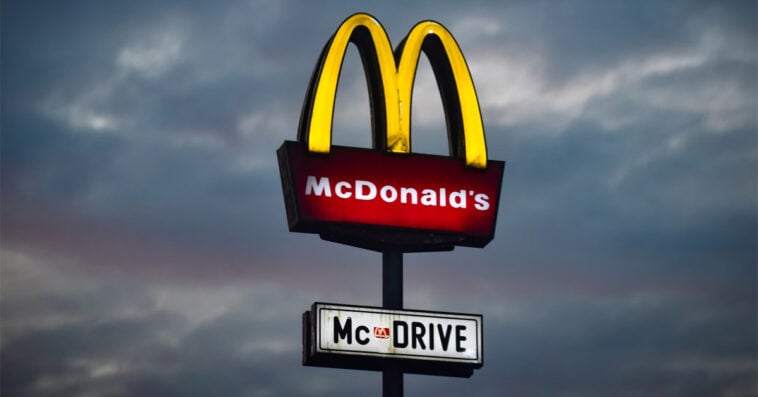McDonald’s CEO is warning the restaurant industry about a quiet crisis: Gen Z doesn’t have the cash to keep up with traditional dining. As young diners rethink where and how they spend their money, eateries of all kinds may be facing a shake-up that goes far beyond any single chain. Keep reading to discover what’s driving this shift—and how restaurants are working to turn it around.
McDonald’s flags growing divide between high- and low-income diners
McDonald’s CEO Chris Kempczinski is sounding the alarm on a deepening divide within the dining landscape, one that mirrors the broader split in the U.S. economy.
“We continue to see a bifurcated consumer base with [quick-service restaurant] traffic from lower-income consumers declining nearly double digits in the third quarter, a trend that’s persisted for nearly two years,” he said during the company’s earnings call on Wednesday, echoing an earlier warning about a two-tiered economy he raised in September. “In contrast, QSR traffic growth among higher-income consumers remains strong, increasing nearly double digits in the quarter.”
Cava feels the sting of Gen Z’s spending slowdown
It’s not just McDonald’s noticing the shift — Cava, the fast-casual Mediterranean chain once synonymous with the lunchtime rush of suburban professionals, is feeling the sting too. The brand, which built its success on catering to higher-income and health-conscious diners, is now struggling to connect with younger, budget-strapped consumers.
Cofounder and CEO Brett Schulman said the challenge is clear: reaching younger customers who are being squeezed by financial pressures on all sides. “We don’t want to overstate the challenges of the consumer, but you can look at the data,” Schulman told investors on Tuesday. “They’re clearly out there, whether it’s student loan repayment, consumer sentiment, just the inflationary pressures all around them, whether it’s health care cost, housing costs—Gen Z unemployment [is] twice the national average.
“When we look at the data, it’s more that the younger cohort, that 25-to-35 … they don’t have the steam that they had last year in the way that they were visiting or their frequency of visiting,” he added.
Economic pressures push young Americans to cut back on dining out
The financial squeeze on young Americans is becoming increasingly visible, especially among those burdened with student loans and stagnant wages. According to a recent FICO report, younger consumers have experienced the sharpest annual drop in credit of any generation since 2020, a sign of mounting financial strain.
Meanwhile, data from the Federal Reserve Bank of St. Louis shows that unemployment among 16- to 24-year-olds is nearly three times higher than that of millennials and Gen Xers, as many face the dual challenges of a slowing job market and the growing influence of AI on entry-level opportunities.
As wallets tighten, dining out has become one of the first sacrifices. An August Redfin survey of 4,000 U.S. homeowners and renters found that about 40% of Gen Z and millennial renters are eating out less just to keep up with rising bills. Even more concerning, one in five young people said they’ve skipped meals altogether to save money.
McDonald’s bets on value while Cava doubles down on quality
While McDonald’s and Cava have both sounded the alarm about a two-tiered consumer landscape, their approaches to navigating today’s financial headwinds couldn’t be more different. McDonald’s, true to its fast-food roots, continues to emphasize affordability, banking on value-driven offerings like its popular Snack Wraps and the comeback of its Extra Value Meals in September — the first such promotion since the pandemic began. These efforts aim to keep budget-conscious diners coming through the door even as prices climb.
Cava, on the other hand, is doubling down on its distinct positioning as a fast-casual brand rather than a fast-food competitor. “We’re not going to get into that heavy discounting to combat any cyclical headwinds. That’s why we talked about doubling down on exceptional operations and great guest experiences,” Schulman told investors. “We want to make sure we’re doing everything we [can] in that spirit to deliver for our guests in this time when they’re feeling pressures all around you.”
Source: Fortune

